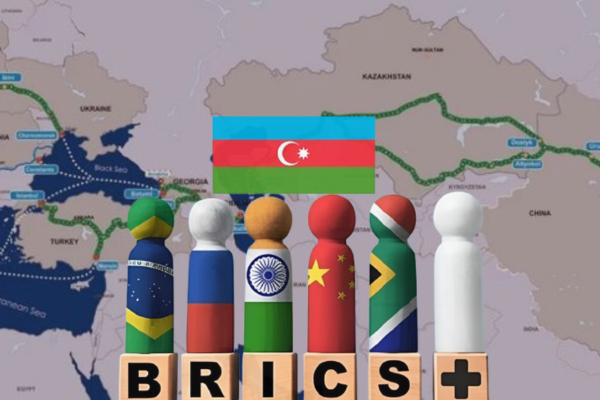WNAM REPORT: From October 22 to 24, the BRICS summit will convene in Kazan, marking the first meeting of the bloc in its newly expanded configuration. This historic gathering has sparked global speculation about further enlargement of the group. With Azerbaijan and Turkiye having recently applied for BRICS membership, international attention has turned toward this significant global format. Unlike traditional organizations, BRICS operates without a permanent secretariat, holding discussions on topics of mutual interest. Lack of consensus among members doesn’t lead to internal crises but rather creates cross-country groupings on specific projects.
In accordance, as the chair of the bloc, Russia is actively engaging with countries interested in joining the organization. The Prime Minister of the Russian Federation, Mikhail Mishustin, has been conducting visits to Iran and is scheduled to visit Armenia today, October 1. He will participate in the meeting of the Eurasian Intergovernmental Council and the plenary session of the Eurasian Economic Forum in Yerevan. During the meeting of the Eurasian Intergovernmental Council, the heads of government of Russia, Armenia, Belarus, Kazakhstan, and Kyrgyzstan will decisively discuss the crucial tasks of deepening integration within the framework of the Eurasian Economic Union.
At first glance, these engagements may seem unrelated to BRICS principles of global cooperation, but when viewed from a broader perspective, a key connection emerges transport and communication.
These are vital areas of interest for Azerbaijan. If we remember that Iran and Armenia are the chosen destinations, the relevance fits perfectly. Importance of the North-South and East-West transport corridors, two major initiatives are supported by both Russia and China within the BRICS framework. China actively seeks to integrate BRICS transport projects with its global “One Belt, One Road” initiative, although not all BRICS members’ interests fully align with this vision. Meanwhile, Russia is focused on developing its transport corridors in the East-West and North-South directions. Establishing a permanent BRICS committee on transport at the August 2023 Johannesburg summit underscores the importance of this sector within the bloc’s broader agenda. As we can see both interests completely overlap. Coincidentally, Russian Deputy Prime Minister Alexander Novak stated in an interview with “Al Arabiya” TV channel that the country is making preparations to transfer gas to the northern provinces of Iran ahead of Mishustin’s visit. This idea also aligns with the North-South transport corridor.
Furthermore, in June 2024, the first meeting of transport ministers of the BRICS member countries was held, and the Declaration of the BRICS countries’ commitment was adopted. At the same time, the New Development Bank (an alternative to the World Bank) operates within BRICS, with tens of billions of dollars in reserves, and is trying to create its financial system as an alternative to SWIFT. Thus, it can be assumed that the topic of transport and logistics, along with other priorities, can become the place of application of financial resources of the structure, and payments within this system can become the first steps of a new financial system. The Kazan summit is expected to further emphasize this, as initiatives like China’s Trans-Caspian Transport Corridor are brought under the BRICS umbrella, potentially attracting new funding and increasing institutional participation from member countries.
The South Caucasus, with Azerbaijan at its heart, plays a pivotal role in these transport initiatives. So as mentioned, the visits to Iran and Armenia are not a coincidence. Both countries have repeatedly expressed their opposition to the establishment of the Zangezur Corridor. Even in August, this issue resurfaced. Russia’s ambassador to Tehran, Alexey Dedov, was summoned to a meeting with the head of the Department of Eurasian Affairs of the Ministry of Foreign Affairs of Iran, Mojtaba Demirchilu. Official Tehran expressed a resolute position on this matter. However, the current geopolitical situation makes it clear that neither Russia nor Iran wields substantial influence over the processes in the region. The regional power potentials of both countries are in decline according to the current situation.
So, overall, Azerbaijan’s diplomacy, focused on BRICS membership and support for both China’s East-West corridor and Russia’s North-South route, is critical. The active involvement of Azerbaijani state structures specializing in transport and economic mechanisms is essential to harness the opportunities offered by BRICS. To successfully challenge the influence of the Western bloc, Azerbaijan must align its economic strategies with the priorities of this emerging global framework.








